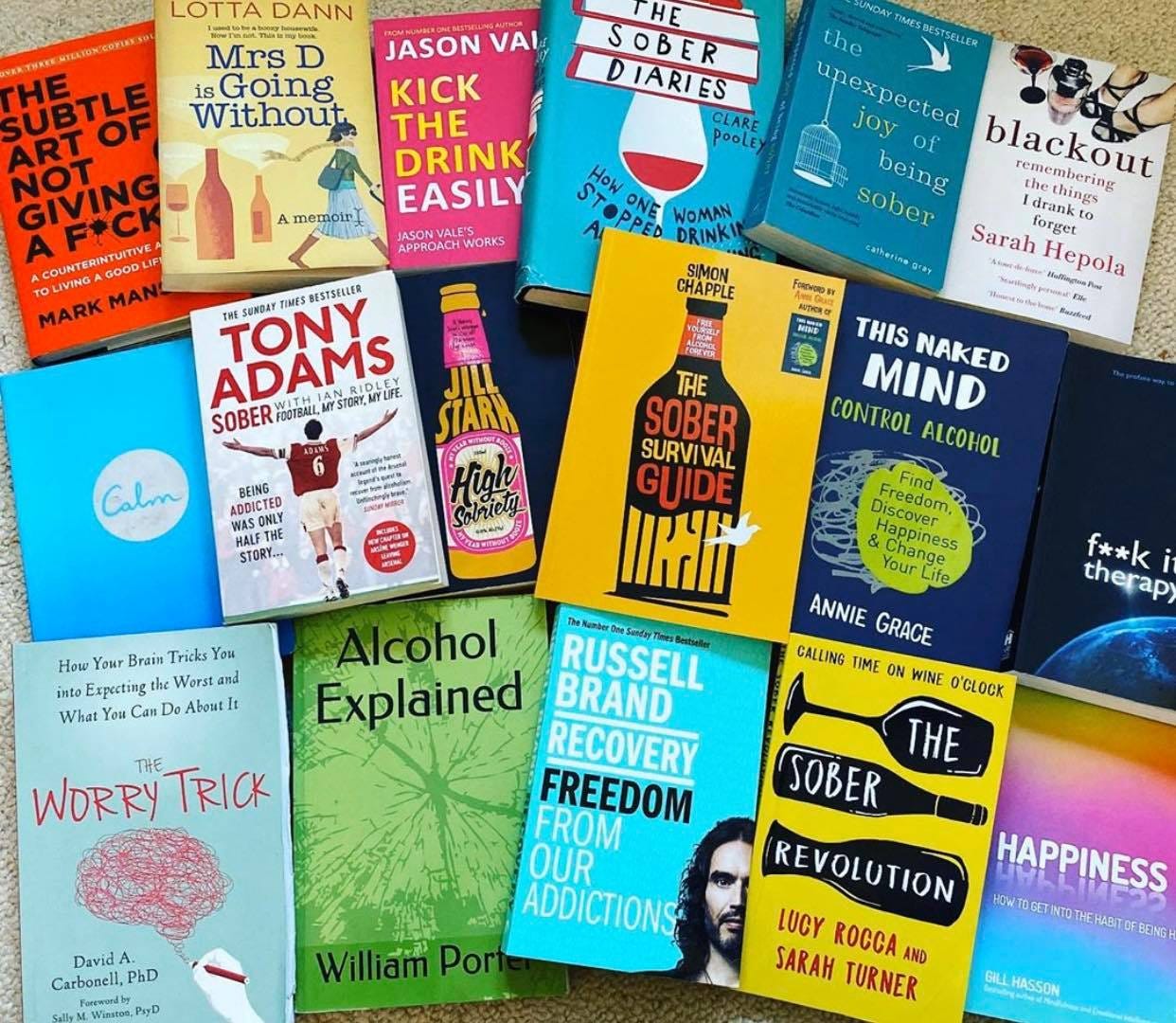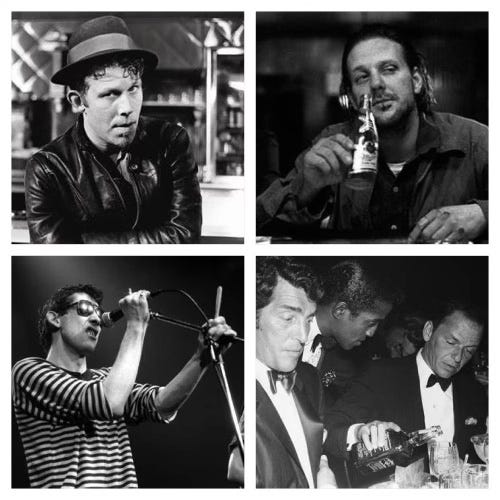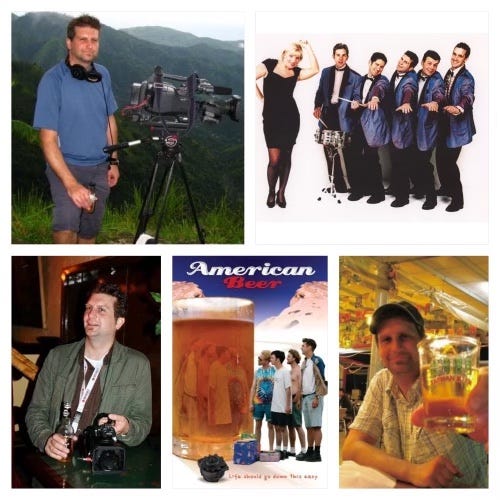The first month of the year is always one of renewal, and as it cleans itself up and sheds its December hangover, it reemerges as Dry January.
Worldwide, millions play along and swear off booze for 31 long days, stoked by their self-restraint and heightened sense of health.
And I watch it all play out. With mixed feelings.
My social feed fills with photos of pimped-out virgin caesars and workout selfies hitched to lines like “giving my liver a break!” and “mocktail hour!” Every post is garnished with a #dryjanuary hashtag, like a maraschino cherry dropped in a Shirley Temple.
And when Dry January wraps up, celebrations erupt online as people cross the finish line, exhausted and blistered by their marathon of abstinence. Finally. We did it.
Me? I have the other 334 days to carry on. And the year after that. And the next year. But I’m not bitter. I just can’t drink like a normal person.
I took a drink, and the drink took me
To quote my favourite Homer Simpson line: “I’m like a chocoholic—but with alcohol!”
Today, if I touch the stuff, it no longer puts me in the doghouse, it delivers me directly to the hospital or treatment in a path of destruction that takes mere days to cannonball, and months to repair. Let’s just say I’m allergic to the shit.
When humans are allergic to things (say, like peanuts), they habitually avoid them. Makes sense, right? But those afflicted with this ‘liquor thing’ have brains that tell them they still want and need what they’re allergic to. Crazy, I know.
It has nothing to do with being a lush, a lack of will-power, or moral failure. It’s complex, it’s insane, and it sucks.
Listen…bear with me. My intention is not to give a self-pitying lesson on addiction or mansplain alcoholism—I’ll leave that to doctors and addiction experts like Gabor Mate. Let’s just say that alcoholism is a medically verified bio-phycho-social-spiritual disease; meaning it lives in the brain, makes the body dependent, hijacks healthy life-work-love, and douses the soul’s connection to itself. Small stuff, really.
It’s not fun (it’s a mental health motherfucker, actually), but it doesn’t have to derange life if managed properly. It can be a hidden pebble in your shoe that you learn to walk with, slips and all.
Dry and Sober are not the same
I’m not begrudging the Dry January graduation announcements I saw last month. Makes as much sense as a diabetic angry at Instagram cupcakes or a bald guy resenting his wife’s new highlights on Facebook.
It’s just that Dry January reminds me that being dry is not the same as being sober.
Being dry is not drinking. Being sober is adopting an entirely new set of thoughts and actions, meditating, fighting isolation, and reuniting with one’s spirit.
Being dry is about will power. Being sober is about finding meaning and connection, because while being dry is temporary, being sober is a life-long endeavour.
Being dry changes your beverage. Being sober changes everything.
Going to war against an addicted body and mind is tough work, I’ll admit. But reinventing yourself is also wickedly fun and wildly rewarding. Sobriety isn’t all church basements and bad coffee—it’s a chance to play all the notes in life you long forgot.
The new happy hour
Today is a pretty decent—and arguably friendlier—time to be sober. The stigma is slowly shifting and openness about addiction has almost become cliche to the point of annoyance. Yeah yeah…you’re recovering and won’t clam up about it…next.
Right now, sobriety is downright fashionable with millennials and Gen Zers, who espouse abstinence in dry nightclubs and festivals; many young people reject booze culture with the same WTF distance I had with my parents’ generation smoking in airplanes. To a sober Gen Zer, a tumbler of scotch isn’t fine-aged, it’s just archaic.
Right now, bookstores are stocked with as many forgettable sober-curious books as self-help bestsellers. Chatty, confessional ‘recovery’ podcasts are tripping over one another to be heard. The AA Meeting Guy is a stock character in every other TV series.
Unfathomable in the black-and-white past, celebrities now speak about sobriety unabashedly, even proudly. Brene Brown, Bradley Cooper, Elizabeth Gilbert, Anthony Hopkins, Naomi Campbell, and Ben Affleck are among thousands of red-carpet recovering alcoholics who openly share about their disease. Musicians like Jason Isbell, Kendrick Lamar, Margo Price, Waxahachee, and Jeff Tweedy make cool and credible songs about the struggle.
And in every second coffee shop I work in, I overhear a couple of alcoholics deep in conversation around recovery lingo. We knowingly nod to each other—anonymous, but not really.
Recovery culture wasn’t so accepted and seemingly ubiquitous in my own journey, but the lifestyle of liquor definitely was. I didn’t connect the dots at the time, but long before alcohol stopped being fun for me, I obliviously followed its romantic pull.
The days of wine and poses
In hindsight, the unwitting pattern I claimed as a youngster is almost comical. I wouldn’t change a lot that brought me to today, but I do find the singularity of my interests a bit symptomatic. Here’s a taster.
In high school, I lived inside the jazzy, drunken lyrics of 1970s Tom Waits (before he got sober). I constantly quoted the movie Barfly, and later, like most white university boys in the arts, I thought I had discovered Kerouac and Bukowski all by myself.
During university, my brother’s friend gave me a job in a wine boutique. I became a part-time wine rep. One year I was the Summer Student Baccardi Breezer Guy and drove around with flats of free samples (one for you one for me).
Later, I made my career in a television industry that stocked fridges with wine and beer to keep us editing late into the night. I directed food, music, and travel shows where I filmed in resorts and clubs where it was normal drink on the job.
There are even more, um, coincidences. I helped write and produce an indie movie with “beer” in the title, and toured the States and Europe in my twenties with a band that had “Martini” in its name. Every night, a tub full of band-only booze.
These ridiculously linked liquor experiences didn’t cause my condition, or even condition me—circuitry and psyche can take a bow for that. But good god, they must’ve planted some fermented notion of booze acceptance somewhere and showed me how embedded the bottle is in everyday life.
You take the dry road and I’ll take the slow road…
It’s no wonder people want a break in the new year. I applaud you for stepping away, even for 31 days. In my bottom times, I couldn’t get through a single morning, sweating and shaking until the stores opened up. But that’s a different, much darker essay.
Dry January reminds me I don’t have the luxury of quitting alcohol for a brief spell, as if taking a hiatus from Netflix or Haagen-Dazs. Dry January is a stern warning that the month doesn’t matter when the job is full-time.
It’s a tough gig, but it’s not a grind. It comes with monumental benefits and insights I wouldn’t have received if I didn’t go through the primordial journey from shipwreck to shore.
I often hear someone in recovery introduce herself as a grateful alcoholic, and now I understand. They did life’s heavy-lifting, went deep, found meaning, and adopted a life of service and kindness. That’s something that can’t be achieved by a TED talk or an hour in church. Believe me, I know. And one day hope to get there.
As February crosses the halfway mark, you normies and us alcoholics shouldn’t go our separate ways in pursuit of better things. Right now, you should drink as you please, because you can. I will continue to try not to drink, because I have to.









Awww...thank you Shirley. Those are so damn kind words! SO COOL you are taking the creative writing course. The best part about those are the cohorts and the people to bounce stuff off of. Thanks for reading this stuff!
Jordan, your writing manages to be both funny and poignant at the same time. We all have our demons. Thanks for sharing your struggle. Your writing was introduced to me by a very wise man in Calgary. I am glad he sent it to me.